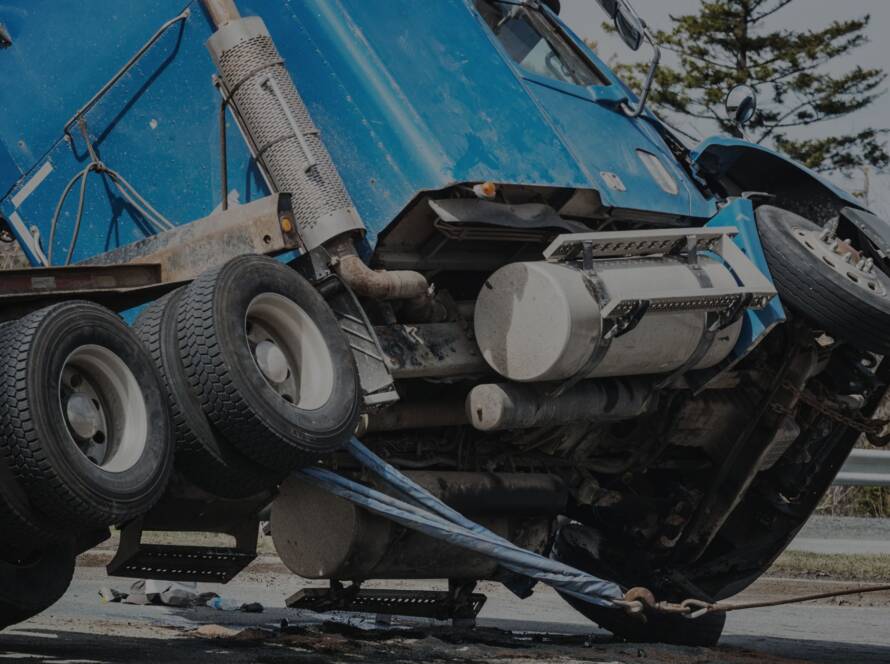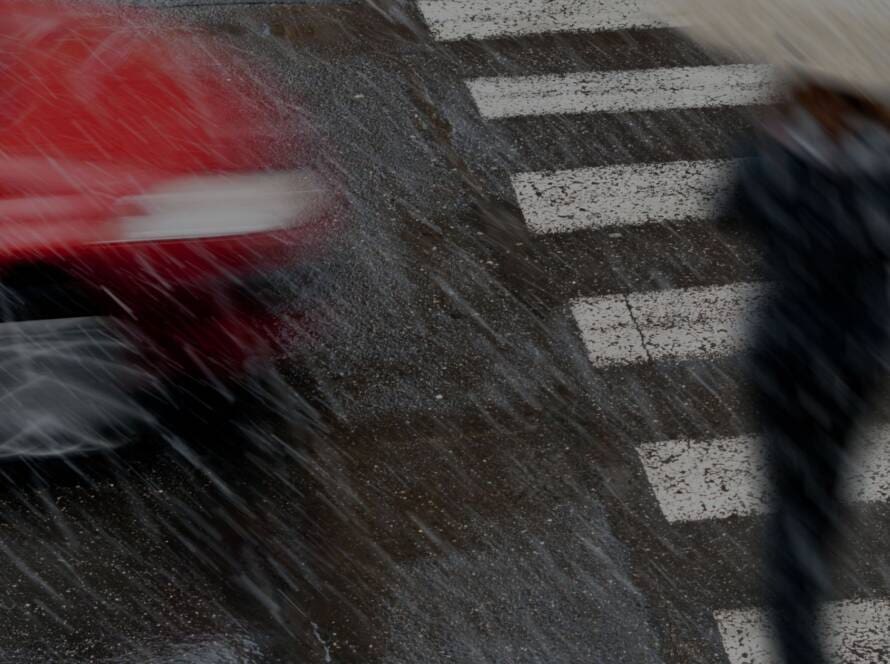Las Vegas has made impressive strides in reducing rollover accidents, with a 15% decrease in 2024 compared to the previous year. As someone who’s called this vibrant city home since 2020, I’ve witnessed firsthand the alarming frequency of these incidents when I first arrived. Now, as we look towards 2025, we’re on the brink of even more groundbreaking changes in road safety.
The landscape of rollover accidents is set to transform dramatically, thanks to cutting-edge vehicle technology and heightened driver awareness. By 2025, we’ll see a substantial increase in cars equipped with state-of-the-art rollover prevention systems. These advancements are exciting, but they’re also introducing new complexities in determining liability and accident causation.
Artificial Intelligence is taking center stage in preventing rollovers. These AI-driven systems will continuously analyze factors like vehicle speed, road conditions, and driver behavior, making split-second adjustments to ensure optimal stability and safety. Imagine navigating a sharp turn on a wet Las Vegas road. The AI system detects the potential for a rollover based on your speed, the road’s curvature, and the slippery surface. In an instant, it adjusts your vehicle’s suspension, applies selective braking, and modifies the steering response to keep you stable and safe.
But AI isn’t stopping there. By 2025, it’ll be utilizing advanced machine learning algorithms to analyze road conditions and adjust vehicle dynamics accordingly. This technology will be a game-changer on Las Vegas’ diverse terrain, from our busy urban streets to the challenging desert roads.

Source: geeksforgeeks.org
In our increasingly connected city, vehicles will communicate seamlessly with Las Vegas’ smart city systems. This integration will enable real-time updates on road hazards, allowing vehicles to proactively adjust their stability systems. The result? A significant reduction in rollover risks and enhanced overall road safety.
Augmented Reality (AR) is another technology set to revolutionize driver awareness by 2025. These advanced displays will provide enhanced visual cues about potential rollover risks, improving reaction times and decision-making. But it’s not just about generic warnings. AR systems will analyze individual driving patterns and provide tailored warnings about potential rollover scenarios.
Climate change is throwing a curveball into our road safety efforts. By 2025, Las Vegas will be grappling with more frequent and intense flash floods, creating hazardous driving conditions and increasing the risk of hydroplaning and rollovers. We’ll need to be prepared for these new challenges, both as drivers and as a city.
Rising temperatures will also affect road surface integrity, potentially leading to more rollover accidents due to unexpected road deformations. By 2025, vehicles in Las Vegas will be equipped with thermal sensors to detect dangerous hot spots on the road that could compromise stability. This technology will provide real-time information about potential hazards, reducing the risk of heat-related rollover accidents.
The rise of autonomous vehicles is introducing a whole new category of rollover accidents. By 2025, we’ll be deep in debates about the ethical implications of AI-controlled vehicles making split-second decisions in potential rollover scenarios. It’s a complex issue that will involve policymakers, ethicists, and technology experts, shaping the future of autonomous vehicle safety protocols.
Determining fault in autonomous vehicle rollovers will be a complex process, involving analyses of AI algorithms, manufacturer responsibilities, and infrastructure factors. We’ll need new legal frameworks and technical expertise to navigate these complexities.
The legal landscape surrounding rollover accidents in Las Vegas is evolving rapidly to keep pace with these technological advancements. By 2025, we’ll see new frameworks that incorporate emerging technologies and societal changes into liability determinations and compensation structures. As a legal professional in this field, I can tell you it’s crucial to stay updated on these technological advancements and their implications for road safety.
Data privacy in accident investigations is becoming a hot topic. The use of extensive vehicle and personal data in rollover investigations is raising concerns about privacy rights and data protection. Balancing the need for thorough investigations with individual privacy will be a key challenge for lawmakers and legal professionals like myself.
Blockchain technology is emerging as a solution for ensuring the integrity and security of accident data. By 2025, it will be standard practice, providing a tamper-proof record of events and enhancing the reliability of evidence in rollover accident cases.
Environmental factors are also coming into play in legal frameworks. By 2025, we’ll be considering the role of climate change in rollover accidents, potentially involving parties beyond just drivers and manufacturers in liability assessments.
The psychological effects of rollover accidents are becoming more complex due to the involvement of advanced technologies and changing societal perceptions of vehicle safety. By 2025, we’ll be using Virtual Reality (VR) technology to help survivors overcome trauma and anxiety associated with rollover accidents. This innovative approach will provide immersive, controlled environments for exposure therapy and skill-building exercises.
Machine learning algorithms will analyze accident data and survivor responses to predict and mitigate post-traumatic stress disorders. This proactive approach will enable early intervention and personalized support for those at high risk of developing PTSD.
Public perception of vehicle safety is shifting as rollover accidents involving highly advanced prevention systems occur. Rebuilding trust and ensuring public confidence in automotive safety technology will be crucial. Manufacturers and tech companies will need to develop clear communication strategies to explain how AI systems make decisions in potential rollover situations.
The financial landscape surrounding rollover accidents in Las Vegas is also transforming, influenced by technological advancements and new insurance models. By 2025, insurance companies will use AI and big data to create dynamic, personalized insurance plans based on real-time rollover risk assessments. This approach will revolutionize how we think about vehicle insurance and risk management.
We might even see blockchain-based micro-insurance for high-risk scenarios. Drivers could opt for instant, situation-specific insurance coverage activated by smart contracts when entering high-risk rollover areas. It’s an innovative approach that will provide flexible, on-demand protection tailored to specific driving conditions.
The city’s reputation for road safety, particularly concerning rollover accidents, will have a significant impact on tourism and the local economy by 2025. Maintaining a strong safety record will be crucial for Las Vegas’ continued success as a tourist destination. We might see the introduction of a new safety rating system for rental vehicles, focusing on rollover prevention technology. This system will encourage rental companies to invest in advanced safety features and maintain their fleets to high standards.
As we navigate this evolving landscape, it’s crucial to have experienced legal representation. At Ultra Law, we stay at the forefront of these technological and legal developments, ensuring you receive the most up-to-date and effective representation. Whether you’ve been involved in a rollover accident or have concerns about these emerging issues, we’re here to help.
Don’t face these complex challenges alone. Reach out to us for a free consultation. We’re committed to protecting your rights and securing the compensation you deserve in this new era of road safety. Let’s work together to make Las Vegas roads safer for everyone.
Key Learnings Recap
- Advanced vehicle technology, including AI-driven stability control and AR displays, will significantly reduce rollover risks.
- Climate change will pose new challenges for road safety, requiring adaptive strategies and infrastructure improvements.
- The rise of autonomous vehicles will introduce complex legal and ethical questions surrounding rollover accidents.
- Novel legal frameworks will emerge to address data privacy, environmental liability, and AI decision-making in accident cases.
- Psychological support for accident survivors will evolve with the integration of VR therapy and AI-assisted PTSD prevention.
- Economic models, including insurance and tourism, will adapt to the changing landscape of rollover accident risk and prevention.
The psychological toll of rollover accidents is evolving rapidly. VR therapy is revolutionizing trauma recovery, offering survivors immersive environments to confront and overcome their fears. I’ve seen firsthand how this technology can make a difference, helping people regain their confidence behind the wheel.
AI’s role in mental health support is expanding too. Machine learning algorithms are now predicting PTSD risk with impressive accuracy, allowing for early intervention. It’s fascinating to see how data analysis can lead to more personalized and effective mental health care.
Public trust in vehicle safety systems is a delicate issue. As advanced technologies become more prevalent, every incident involving these systems can have far-reaching consequences. Transparency is key. Manufacturers are developing innovative ways to explain AI decision-making processes to the public. Interactive simulations and clear communication strategies are becoming essential tools in maintaining consumer confidence.
The economic landscape surrounding rollover accidents is undergoing a seismic shift. Insurance models are becoming more dynamic and personalized. AI and big data are enabling real-time risk assessments, fundamentally changing how we approach vehicle insurance.
Blockchain technology is making waves in the insurance sector too. The concept of micro-insurance for high-risk scenarios is particularly intriguing. Imagine activating instant coverage via smart contracts when entering areas prone to rollovers. It’s a level of flexibility and customization we’ve never seen before in insurance.
Las Vegas’s reputation for road safety is more crucial than ever. Our tourism industry depends on it. We’re seeing the development of AI-powered tourism impact prediction models and real-time safety rating systems for tourist areas. It’s a proactive approach to maintaining our city’s appeal while prioritizing visitor safety.
The rental car industry is adapting too. A new safety rating system focusing on rollover prevention technology is influencing both tourist choices and rental company practices. It’s encouraging to see companies investing in advanced safety features and maintaining high standards for their fleets.
As we navigate these changes, the need for specialized legal expertise is more critical than ever. The complexities of cases involving advanced technologies, AI decision-making, and new insurance models require a deep understanding of both law and technology.
At Ultra Law, we’re committed to staying ahead of these developments. Our team continuously updates our knowledge and strategies to provide the most effective representation in this rapidly evolving field. If you’re dealing with the aftermath of a rollover accident or have concerns about these emerging issues, don’t hesitate to reach out. We’re here to guide you through the complexities of modern road safety and accident law.
Remember, in this new era of road safety, knowledge is power. Stay informed, stay safe, and know that expert help is always available when you need it.




